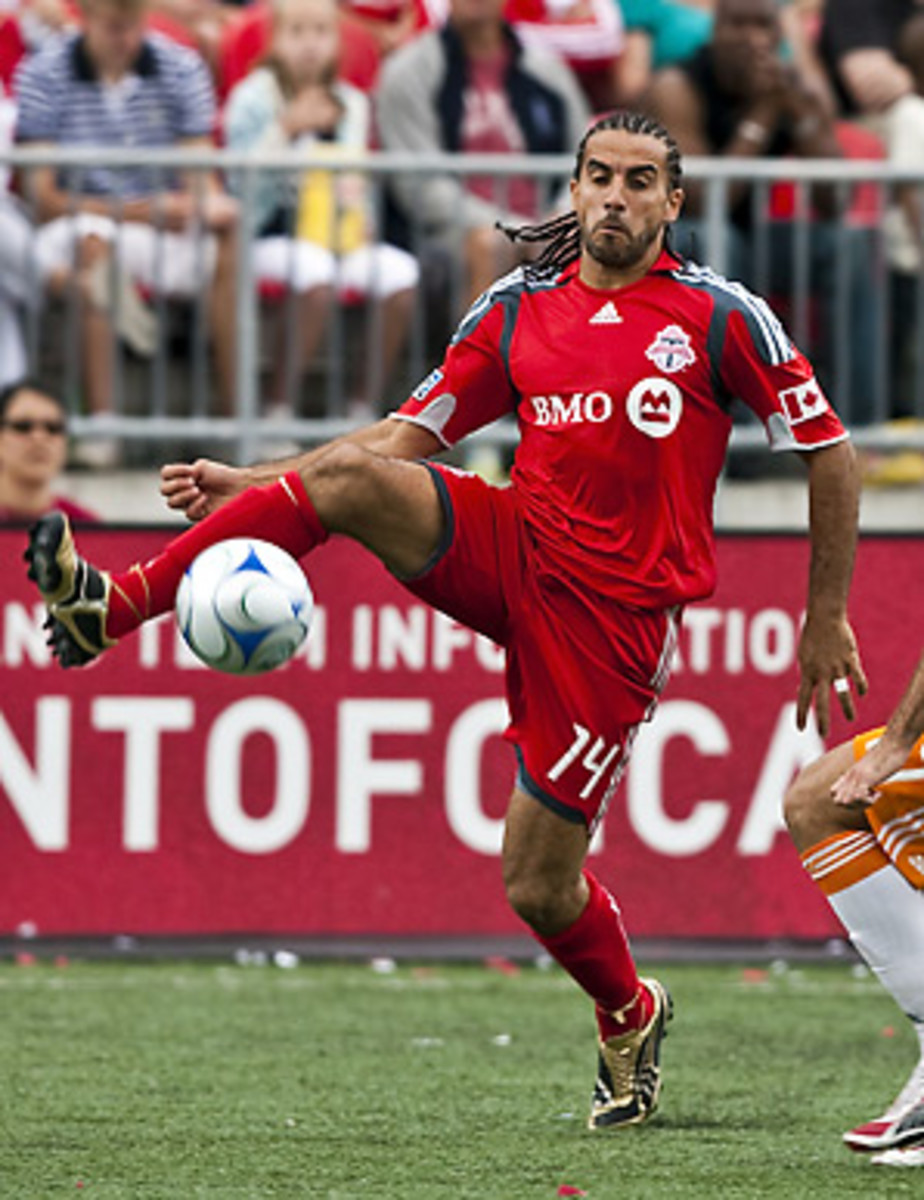Bad timing for this All-Star Game
Additions and subtractions to the MLS All-Star team that lost to Everton on penalty kicks on Wednesday at Rio Tinto Stadium removed much of the luster that is supposed to emanate from one of the league's showcase events.
True, the All-Star Game is an exhibition, nothing more, and Everton used the game to help prepare its players for the upcoming English Premier League season. Yet while conflicts with other competitions are inevitable, the scheduling of CONCACAF Champions League matches for this week has exacerbated congestion beyond the critical point.
MLS officials say all the right things about cooperating with U.S. Soccer, CONCACAF and other entities for national team call-ups, and cause some logjams themselves through SuperLiga. But they do regard games matching league teams -- or an All-Star squad -- against foreign foes as important, both as a television product and a competitive frame of reference.
While there are enough deserving, talented players to replace those All-Stars unable to participate, the absences focus more scrutiny on a league already burdened by fitting FIFA dates and other international commitments into its schedule. How the league can work out its conflicts with CONCACAF events, U.S. Open Cup, SuperLiga and other matches is a serious issue this year, and only will intensify next year with a World Cup to squeeze into the calendar.
Dwayne De Rosario was not in Salt Lake City; he played for Toronto FC against the Puerto Rico Islanders in Champions League play on Wednesday (where the Reds lost 1-0) and was replaced by Cuauhtémoc Blanco of Chicago.
Despite compiling one of the best records in the league, D.C. United didn't have any players in the All-Star Game, as it drew with Salvadoran club Luis Ángel Firpo 1-1 on Tuesday in the CCL. New York's dismal season probably would have precluded it from sending any of its players anyway, yet its match Thursday against W Connection (of Trinidad and Tobago) has excluded them, too.
Under terms of the Collective Bargaining Agreement (CBA) negotiated by the MLS Players' Union and the league, for purposes of paying bonuses and other considerations, MLS is obligated to announce a squad of 32 players, as if it were staging an Eastern Conference vs. Western Conference All-Star Game. While the wisdom of playing an All-Star Game can be debated, the league has tried to upgrade its stature by playing foreign teams rather than a intraleague exhibition, but is running into too many conflicts to field its strongest team.
Houston doesn't play in the Champions League this week -- its group-stage schedule starts next month -- yet Brian Ching, bruised and battered from playing in the Gold Cup, was withdrawn from the All-Star roster and replaced by Fire defender Bakary Soumare. Injured Dynamo keeper Pat Onstad also was pulled and was replaced by Chivas USA goalie Zach Thornton.
All-Star coach Dominic Kinnear certainly would have preferred to beat Everton, yet he can't be blamed for looking ahead to an important league match on Saturday against D.C. United. He must consider that one of his two players who played in the All-Star Game, Stuart Holden, is also coming off an arduous stretch of Gold Cup matches.
There are always alterations to All-Star rosters -- in all sports -- because of injuries, fatigue or other complications. Compromises are inevitable. On Wednesday, fans got to see many of the league's best players take on a solid EPL team, and subplots -- such as the initial All-Star appearance for longtime national-team keeper Kasey Keller, and ex-MetroStars keeper Tim Howard taking on many of his U.S. teammates and former MLS rivals -- shaped interesting storylines.
A glorified exhibition like the All-Star Game isn't the most serious situation regarding schedule congestion. But at some point, MLS, U.S. Soccer and CONCACAF must get on the same page to lessen the suffering on all sides.






